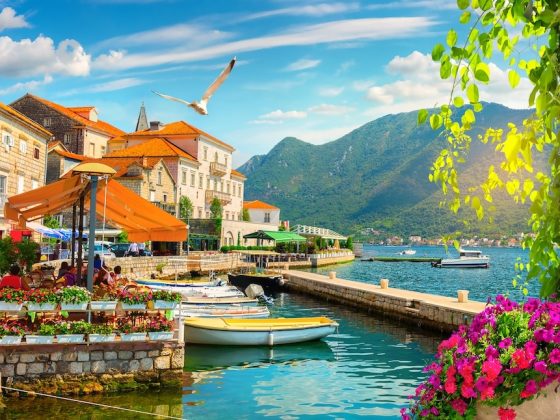João G. Gil Figueira isn’t here to sell Portugal, he’s here to translate it. From Lisbon, Figueira advises the global clients drawn to the country’s promise—remote entrepreneurs, private investors, digital founders, and retirees—hoping to relocate smoothly. But behind the pastel buildings and lifestyle marketing lies a complex legal terrain, and João helps clients map it before they make costly mistakes.
His legal work sits at the intersection of cross-border tax, estate strategy, relocation planning, and commercial law—built on years working in London, Lisbon, and beyond. As Portugal tightens its residency pathways and rewrites its tax regimes, João offers more than legal documents: he offers context. In this conversation, he breaks down what’s changed, what expats overlook, and why smart planning starts long before the move.
Read more like this: Top 5 Places To Live In Portugal
What first drew you to cross-border and international law? Was there a particular case or moment that shaped your focus on working with expats and global investors?
It wasn’t an epiphany, but rather several events in succession. Law is a family tradition, and my father has advised foreign investors in Portugal since the 80s, so I was exposed early to a cross-border practice. After law school I joined a London-based law firm and worked in tax, real estate, and M&A. After a couple of years, I moved back to Portugal to work in a Big Four firm in tax. Today, my private-client practice focuses on cross-border taxation, investment structures, estate planning, and immigration. I also advise SMEs on M&A deals, tax, commercial aspects, and regulatory matters, particularly in the TMT, blockchain/crypto, and fintech sectors.
You’ve worked in London, at a Big Four firm, and now co-founded your own practice in Lisbon. How has that international experience shaped your approach to advising clients?
Almost every matter had a cross-border component that forced me to speak with lawyers from other jurisdictions. I realized that the real value I could offer clients was the ability to translate legal cultures and risk tolerances.
For my practice to be successful, zoom-out thinking is required. Pragmatism was also a by-product of dealing with different cultures and jurisdictions, and it is needed in the context of complex international cases.

What trends are you seeing in expat demand for Portugal? Are particular nationalities or client profiles driving this wave?
The mix of expats in Portugal keeps evolving. Brazilians remain the largest group. The British community is large. North Americans are the fastest-growing high-net-worth cohort. South Asian professionals are filling talent shortages in areas such as hospitality, and then you have digital-nomad founders and remote-first start-ups from all over.
The driver has moved from simply seeking a cheap lifestyle to finding a quality base for building a business or managing global wealth. Many expats start businesses in Portugal with a growing entrepreneurial interest. Other consistent attraction factors include Portugal’s welcoming communities, Mediterranean climate, high safety ranking, universal healthcare access, and good work-life balance.
The driver has moved from simply seeking a cheap lifestyle to finding a quality base for building a business or managing global wealth.
The pitfalls often stem from a lack of pre-arrival planning or a do-it-yourself approach.
Individuals with some legal or tax competence sometimes fall victim to the Dunning–Kruger effect by overestimating their knowledge and underestimating complexity. The truly uninformed people usually seek professional help. In any case, confidence is not competence.
Pre-immigration planning and paperwork are critical. When clients are business owners or operators, that aspect needs to be analyzed, and complexity increases with larger or multi-jurisdictional companies. In simpler cases, missing something trivial in an application can push you back in an already backlogged system.
Tax planning and timing are also important, as Portugal taxes its residents on their worldwide income. Many do-it-yourself movers forget to align fiscal years, liquidate or adjust portfolios, review fiduciary structures, or file forms in the appropriate order.
Read more like this: Things to Know if You’re Moving to Portugal
I must point out that certain structures that are tax-neutral or tax-advantageous in other jurisdictions, such as trusts, may need to be adjusted or changed to civil-law-compliant ones to avoid punitive look-through taxation and/or estate-law surprises. Each case is different, of course.
Tax planning and timing are also important, as Portugal taxes its residents on their worldwide income.
The Portuguese government has made several changes around residency, taxation, and the Golden Visa. What are the biggest regulatory shifts expats should note right now?
The end of NHR was extremely important. Still today, some expats relying on outdated or incorrect online information think that Portugal does not tax their foreign income. This was a common misconception even under the NHR regime, as certain types of income were taxed.
While existing NHR holders retain their benefits for the original ten-year period, new applications are no longer accepted. Its replacement, the Incentive to Scientific Research and Innovation (IFICI) regime, or “NHR 2.0,” is harder to obtain. It offers a 20 % flat tax rate for certain “highly qualified” professionals in specific technology, research, or advanced-services roles, or for board members/personnel of export-oriented companies. This regime requires annual certification and is significantly more complex than its predecessor; nevertheless, it allows a tax exemption on most types of foreign-sourced income, except for pensions.
There’s a proposed nationality-law tightening, and a government-sponsored draft decree recently presented would double the residence period for naturalization from five to ten years (seven for CPLP nationals) and add cultural-integration tests; Parliament is set to discuss it in September.
Proper pre-immigration planning is critical as it can reduce long-term tax friction.
You also advise private clients on wealth planning and asset protection. How important is pre-arrival planning for Americans or other HNWIs looking to relocate?
It is more critical than ever. Under NHR many U.S. and U.K. clients could rely on broad foreign-income exemptions; IFICI narrows those significantly, and most people are not eligible for it. Therefore, passive income that once slipped through now faces Portuguese income tax.
Proper pre-immigration planning can reduce long-term tax friction. For families with EU passports, aligning estate structures with or against Portugal’s forced-heirship rules avoids the unpleasant surprise of a statutorily protected “legitimate portion” overriding their intended plans.
A recent trend following the last elections is Americans moving their assets to European banks and brokers. This goes against tradition which Americans living in Europe used to keep all their savings and investments stateside.
Read more like this: One man’s journey to a fresh start in Portugal

For business owners and entrepreneurs considering a move, what unique advantages—or challenges—should they prepare for?
The new center right government is pushing business friendly legislation. It’s expected that future state budgets will trim down the headline corporate income-tax rate, currently at 20 % for income in excess of €50,000 and 16% for income below that threshold.
Depending on the sector, there are generous R&D super-deductions and access to EU funding programs. English-proficient talent is also a plus, with Portugal ranking 6th in the English Proficiency Index.
The Portuguese Participation Exemption Regime provides a tax exemption on inbound and outbound dividends and capital gains derived from qualifying shareholdings. The Portuguese IP/Patent Box allows for up to an 85 % tax exemption on income derived from the sale or temporary licensing of industrial property rights such as patents, industrial designs or models, and copyrights on software.
Read more like this: Reduce your taxes by moving Abroad
Portugal has one of the densest tax-treaty networks, with 78 treaties that provide companies and private investors broad protection against double taxation worldwide. As an EU member state, Portuguese entities can also rely on several directives facilitating trade, becoming an efficient springboard both into and out of the European market.
Regarding challenges, licensing timetables can be lengthy, and bureaucracy is pervasive. Wage costs are rising, and Portuguese labour law remains protective of workers. Termination at will does not exist, and termination of employment requires a careful legal choreography of “just cause” or redundancy procedures. Seasoned entrepreneurs and investors should budget for bureaucracy and hire bilingual counsel from day one, not just to try to fix issues after the fact.
Seasoned entrepreneurs and investors should budget for bureaucracy and hire bilingual counsel from day one, not just to try to fix issues after the fact.
Given your fintech, blockchain, and creative-industry experience, are you seeing more “digital-nomad” entrepreneurs choosing Portugal? What’s drawing them?
Yes, the inbound numbers are going steady after a COVID dip. The tech sector is now a maturing ecosystem that can grow much further, in my opinion.
Many of our clients are founders or entrepreneurs who cherish international living. This blend of lifestyle, connectivity, relatively straightforward visa processes, and a burgeoning entrepreneurial environment continues to draw digital-nomad entrepreneurs to Portugal in significant waves.
The D8 visa lets remote earners prove income once and renew for up to five years. The country’s time zone still overlaps nicely with the Americas and EMEA, which is key for location-independent but time-dependent professionals.
In the blockchain/crypto sector, Portugal’s current policy of not taxing long-term capital gains on crypto or NFTs remains a big magnet.

What’s one piece of advice you find yourself giving clients over and over about relocating?
Tell your lawyer everything before you move funds, sign a contract, or book a flight. Use the same level of caution you would use in your home country. Hidden trusts, silent partners, crypto wallets, offshore accounts—even that LLC you forgot about—can change immigration plans and tax strategies. Surprises discovered at audit time are always more expensive than full disclosure.
Read more like this: Experts Advice to Moving Abroad
For readers who’d like to connect or learn more about your firm, where should they start?
Visit our website at www.gfdl.legal or send us an email at hello@gfdl.legal. Our main office is in the heart of Lisbon’s central business district (Marquês de Pombal), and of course we also advise clients worldwide remotely.
If you’re considering traveling or moving abroad, be sure to explore your healthcare options. Visit International Citizens Insurance to learn more and get a free quote.
————-
João G. Gil Figueira is a Lisbon-based international tax and business lawyer. He advises global investors, founders, and private clients on cross-border structures, relocation planning, and regulatory strategy across Europe, with a focus on fintech, blockchain, and international tax law.










